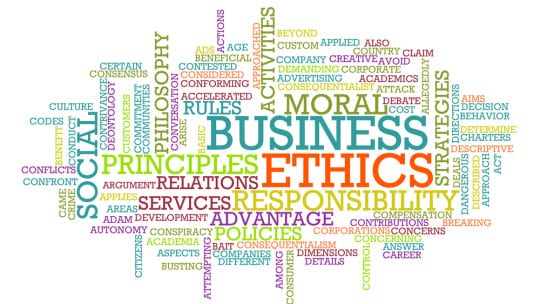
For years, conventional wisdom was that brands should stay in their lane and avoid weighing in on politics or social issues.
But as research reports and surveys show, conventional wisdom is no longer quite so conventional. More consumers—particularly millennials—insist brands stand for something. Producing a useful, reliable product is no longer enough.
Aside from research, recall the January 2018 letter from Larry Fink, CEO of BlackRock, insisting companies contribute to society or risk losing the backing of his $6 trillion investment firm. “Without a sense of purpose, no company, either public or private, can achieve its full potential. It will ultimately lose the license to operate from key stakeholders,” he wrote.
This is not merely a feel-good situation. Remaining behind a political firewall and refusing to comment on issues could hurt brands at the cash register as consumers may choose to make their purchases elsewhere.
That being said, brands wade into politics on several levels, and sometimes the motivation behind their involvement is unclear initially.
Barring Roseanne
For instance, on the surface ABC’s cancellation of Roseanne Barr’s revived series seemed to place the television network on the moral high ground. As more stories emerge, though, it seems clear ABC executives and actors on the series were aware of Barr’s potential for inciting a PR crisis with her social media content when the reboot was green-lighted. In addition, they knew Barr’s politics were a tinderbox and the series could be pulled at any moment. ABC went into business with her anyway.
ABC axed the series when it calculated Barr’s political views had reached the point where they carried undue risk to the network’s revenue potential. Morality and politics were secondary.
Motion Sickness
More recently , several airlines urged the Trump administration to avoid using their aircraft to carry children separated from families at the U.S.-Mexico border. Their motivation seems genuine.
American Airlines led the charge in a statement June 20 that read in part, “The family separation process that has been widely publicized is not at all aligned with the values of American Airlines — we bring families together, not apart…We have no desire to be associated with separating families, or worse, to profit from it."
By day’s end, United, Frontier, Spirit, Alaska and Southwest joined the chorus in not wanting their planes deployed as part of the policy to separate migrant children from their parents.
After the president signed an executive order late in the afternoon ending the separation of children and families, Delta issued a statement that read in part, “Recent reports of families being separated are disheartening and do not align with Delta’s core values...We applaud the Administration’s Executive Order resolving the issue of separating children from their families at the U.S. border.”
Digging deeper, it appears flight attendants and their unions may have prompted statements from the carriers. Crew members apparently were balking at the possibility of working flights carrying migrant children away from their families. The union said members were “struggling with the question of participating in a process that they feel is deeply immoral.”
It added, “We have asked the airlines to communicate with flight attendants so that we know what to expect, whether these children could be on our flights, how we will be notified, what special instructions there may be for care of these children if they are on our flights and how to respond to passengers asking us questions about the airline’s role, if any, in transporting these children to detention centers away from their parents.”
It's Not Always the Real Thing
In any case, brands making statements in the political arena must do so with their eyes open. Recall the April 2017 brouhaha that erupted as a result of Pepsi’s short film featuring Kendall Jenner, in which the model seemed to transcend opposing sides during a civil rights protest merely by handing out soda. Avoiding such tone-deafness is where communicators could help, of course.
More dangerous, perhaps, is when brands step into politics blindly. While the story failed to get wide international attention, Adidas was plunged into a PR crisis last month when the brand, hoping to tap into a nostalgia vibe as Russia was preparing to host the World Cup, unveiled a line featuring the old Soviet Union insignia emblazoned on shirts and dresses. The response from former Soviet republics—including Ukraine—which recall the Soviet era as one of subjugation and death camps, not nostalgia, was swift. Adidas quickly removed ads for the clothing line from numerous online outlets.
Seth Arenstein is editor of PR News. Follow him: @skarenstein
